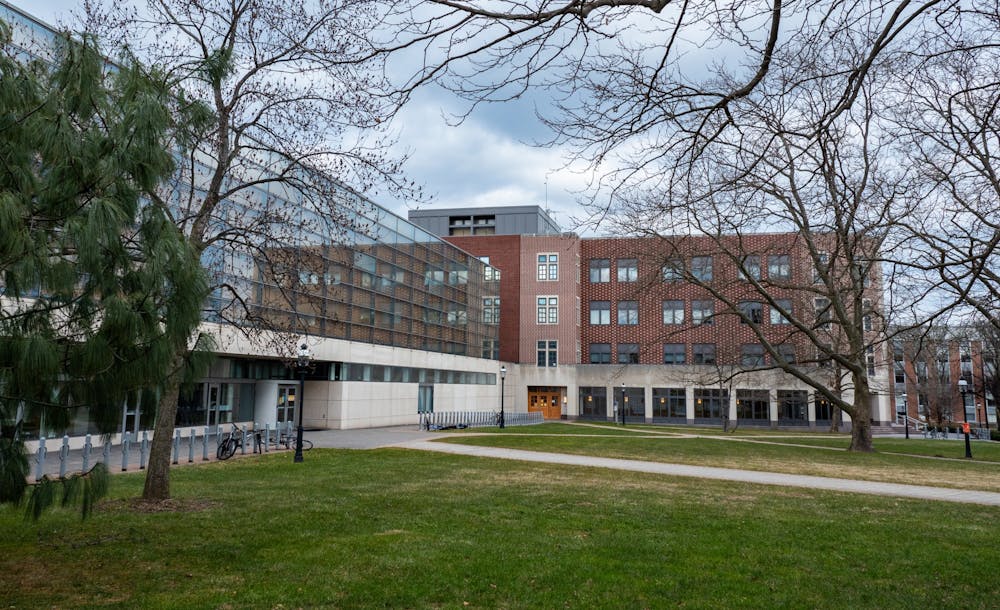On Monday, April 3, students enrolled in COS 126 (Computer Science: An Interdisciplinary Approach), got a Canvas announcement from Professor David August entitled “Important Collaboration Policy Information.”
In it, he requested that everyone review the COS 126 Collaboration Policy. “After reviewing the policy, if you feel you have accidentally, or even intentionally, not followed our policy, committed plagiarism, attempted to gain an unfair advantage, or committed another violation of course policy, you may bring this to the attention of David August or Alan Kaplan,” August wrote in the announcement.
“In general, if such an admission occurs before a disciplinary case has been submitted and found to be complete and truthful, such cases will not be submitted to the Committee on Discipline/Honor Committee,“ he wrote.
Students have not had updates since the email was sent and a variety of rumors have swirled in the absence of firm information. The instructors and preceptors of the introductory computer science course did not respond to requests for comment from the ‘Prince.’ The ‘Prince’ granted anonymity to multiple students to discuss disciplinary matter.
Suspected violations of the honor system result in a hearing before the Honor Committee, while violations related to problem sets, essays, or laboratory reports will be dealt by the Committee on Discipline. Accused students first meet with a University investigator and their director of student life and then undergo a hearing, where they can present their case and must respond to questions from Committee members and other relevant parties, including professors. Committee on Discipline punishments can be stiff, including year-long suspension.
Computer science classes have historically formed a large fraction of the cases involving honor code violations. Notably, during the pandemic, the ‘Prince’ reported that “almost all the cases came from economics, mathematics, or computer science.”
“I would assume that some students plagiarized work from other students or online and were caught by the COS 126 staff,” Sabreen Alam ’26, who is in the COS 126, speculated.
Other students in the class doubted that there was anything happening: “It just seems like scare tactics they’re using as the assignments get harder and people want to cheat on them more,” one said.

Another anonymous student said that his preceptor “told [us that] they had a whole stack of reports ready to be sent to the Committee on Discipline [because] they’d found a bunch of cheating in the previous few assignments and so they were like ‘turn yourself in and get a lighter punishment or don’t and get the full punishment.’”
A different anonymous student said that their preceptor announced that private investigators found evidence that “corroborated” the existing charges. The University’s use of private investigators in disciplinary has garnered mixed reactions in the past.
Yet without firm information, a more outrageous array of hearsay is spreading. According to one circulating rumor, a group chat used to share code was infiltrated by Teacher’s Assistants. Another rumor alleged that instructors detected students using ChatGPT on assignments. The ‘Prince’ has not been able to independently confirm any of these rumors.
In the Canvas announcement, August wrote, “A penalty consistent with the course policy violation may be assessed (e.g., an impact on your grade), which is much less severe than the typical University-level penalty (e.g., mark on permanent record and suspension). Admissions will not be shared with other COS 126 staff beyond the senior staff. A student taking this option will not be treated differently going forward.”

August’s message included a Q&A section in which he answered questions that he anticipated the message would raise.
Additionally, he explained the process used to detect plagiarism, which he said he did in order to put students’ minds “at ease.” According to August, there are thousands of ways to do every COS 126 assignment, but “for some parts of the code there are only a few correct ways to do it.” He wrote, “There exists an entire science to finding the ‘fingerprint’ in the code. Similarity may or not indicate a problem … parts of the code [for which there are not many ways to do it] are not a meaningful part of the fingerprint.”
He elaborated on their plagiarism detection process: “We don’t pursue a case unless the analysis reveals a vanishingly small probability of similarity by independent development. In all cases in which I have been involved, we provided [evidence to the investigators] or investigators uncovered corroborating evidence outside of the code itself.”
Julian Hartman-Sigall is an assistant News editor for the ‘Prince.’
Zach Lee is a News contributor for the ‘Prince.’
Please send any corrections to corrections[at]dailyprincetonian.com.








